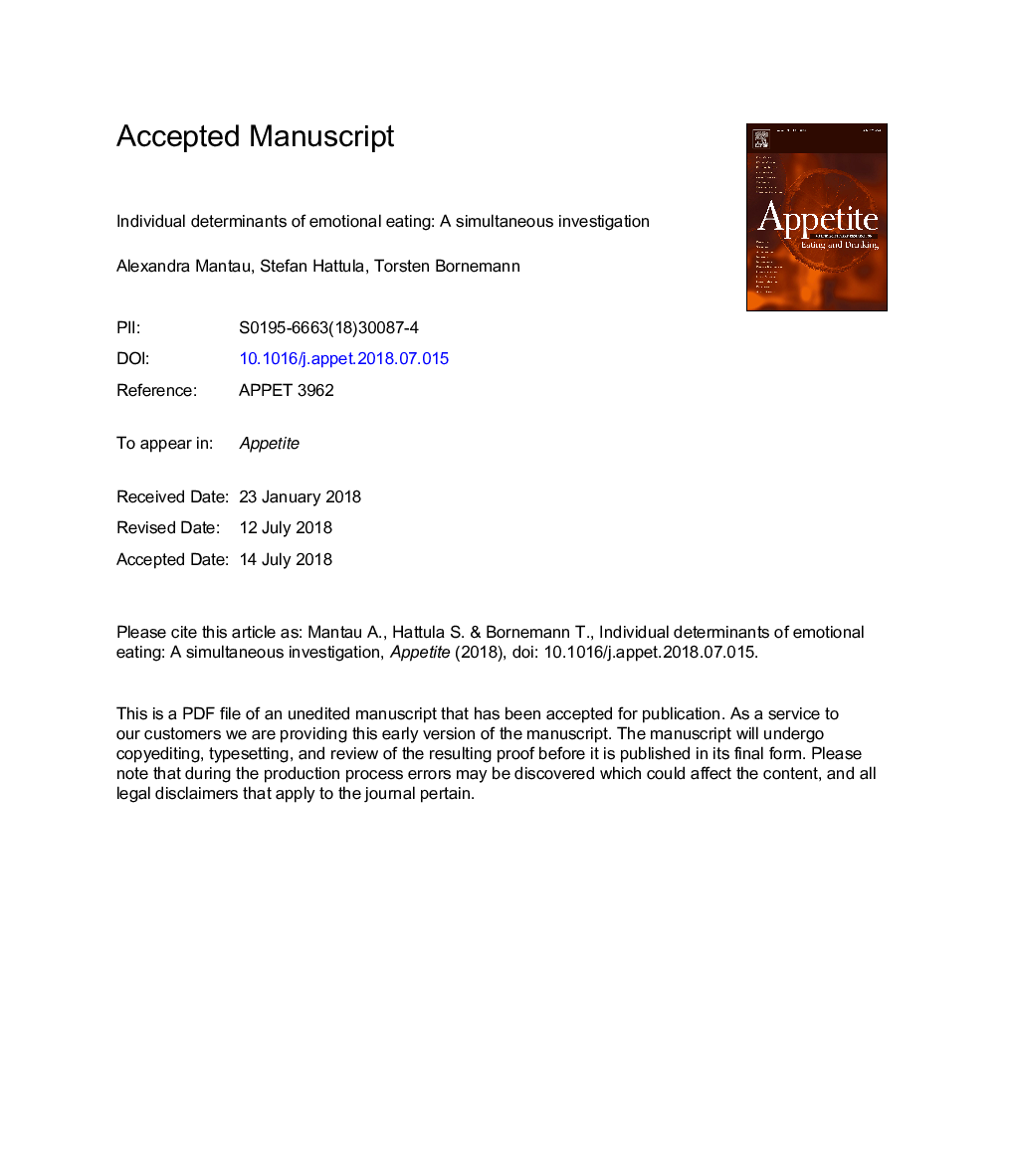| Article ID | Journal | Published Year | Pages | File Type |
|---|---|---|---|---|
| 7305023 | Appetite | 2018 | 43 Pages |
Abstract
Emotional eating, the tendency to regulate negative mood through unhealthy food intake, has been widely recognized as one source of today's obesity epidemic. However, empirical evidence suggests that this phenomenon is not universal but subject to psychological, situational, and biological determining factors. To date, little is known about the relative importance of these determinants of emotional eating behavior, as no research has investigated these factors simultaneously. This study aims to close this gap and reports the results of a laboratory experiment with 179 participants from a university environment (mean ageâ¯=â¯23.15 years, ranging from 17 to 63 years; 56.98% male), in which real food choice was observed after manipulating participants' mood states (either negative or positive) while simultaneously assessing potential determinants of emotional eating. Binary logistic regression analysis revealed that the biological determinants (e.g., weight status) tend to loose in relative importance while psychological (i.e., restrained eating) and situational (i.e., stress) factors tend to be more relevant in explaining food choice in response to a negative affective state. These results have important implications for both research and public health practice.
Related Topics
Life Sciences
Agricultural and Biological Sciences
Food Science
Authors
Alexandra Mantau, Stefan Hattula, Torsten Bornemann,
